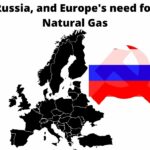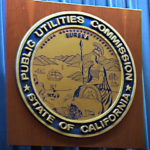Despite diplomacy and threats of sanctions from the West, Russia is moving forward on Tuesday with plans to annex Crimea after a referendum on Sunday that was boycotted by the opposition. In this context, some are saying that Europe needs to rethink policies on hydraulic fracturing, lifting bans and regulations.
Europe is highly dependent on natural gas from Europe, most of which flows through Ukraine. Because of rising tensions between Ukraine and Russia over the past few years, tensions that have reached a crisis point since Ukraine ousted former President Yanukovych, Europe’s “energy security” concerns are whether Russia will, again, shut off natural gas supplies.
To address Europe’s energy security concern, Europe and the US have for years looking for new natural gas sources for Europe, preferably ones not outside Russia. Potential new sources include Libya, Egypt, and using fracking to extract natural gas from shale deposits across Europe.
Last week the European Union Parliament adopted legislation to ensure environmental impact assessments (EIAs) take better account of biodiversity and climate change. Fracking was excluded from the new regulations![]() . The EU Parliament was willing to include shale fracking in the regulations, but intense lobbying in December led to a compromise excluding fracking.
. The EU Parliament was willing to include shale fracking in the regulations, but intense lobbying in December led to a compromise excluding fracking.
Poland, also last week, offered six years of tax breaks to fracking operations![]() . Previously, western oil companies like Marathon Oil and ExxonMobil had begun exploratory fracking in Poland, only to stop when the country moved to increase taxes. The deal says that Poland may, after 2020, begin taxing fracked natural gas, but would refrain from doing so until then.
. Previously, western oil companies like Marathon Oil and ExxonMobil had begun exploratory fracking in Poland, only to stop when the country moved to increase taxes. The deal says that Poland may, after 2020, begin taxing fracked natural gas, but would refrain from doing so until then.
“The current Ukraine-Russia situation could spur European countries to increase their fracking efforts,” Michael Peterson, managing director, energy research, of MLV & Co., said. “Although the political clout of the green/environmental parties in Europe is likely to remain formidable, even in the face of harsh economic reality, longer-term, escalation could motivate incremental/accelerated exploration for alternative natural gas sources.”
Some in Europe are hoping to speed up adoption of fracking, exploiting shale gas deposits to produce more natural gas. In addition to the energy security concerns, Europe is seeking to wean itself from coal, and decarbonize its energy mix in the face of climate change threats.
Natural gas is still a fossil fuel, and burning natural gas still contributes to climate change. Moves to increase the adoption of fracking will only worsen climate change conditions. According to an IPCC report leaked yesterday, climate change should cause food shortages and increasing violent conflict or war around the world over the next several decades.
- Is there enough Grid Capacity for Hydrogen Fuel Cell or Battery Electric cars? - April 23, 2023
- Is Tesla finagling to grab federal NEVI dollars for Supercharger network? - November 15, 2022
- Tesla announces the North American Charging Standard charging connector - November 11, 2022
- Lightning Motorcycles adopts Silicon battery, 5 minute charge time gives 135 miles range - November 9, 2022
- Tesla Autopilot under US Dept of Transportation scrutiny - June 13, 2022
- Spectacular CNG bus fire misrepresented as EV bus fire - April 21, 2022
- Moldova, Ukraine, Georgia, Russia, and the European Energy Crisis - December 21, 2021
- Li-Bridge leading the USA across lithium battery chasm - October 29, 2021
- USA increasing domestic lithium battery research and manufacturing - October 28, 2021
- Electrify America building USA/Canada-wide EV charging network - October 27, 2021












